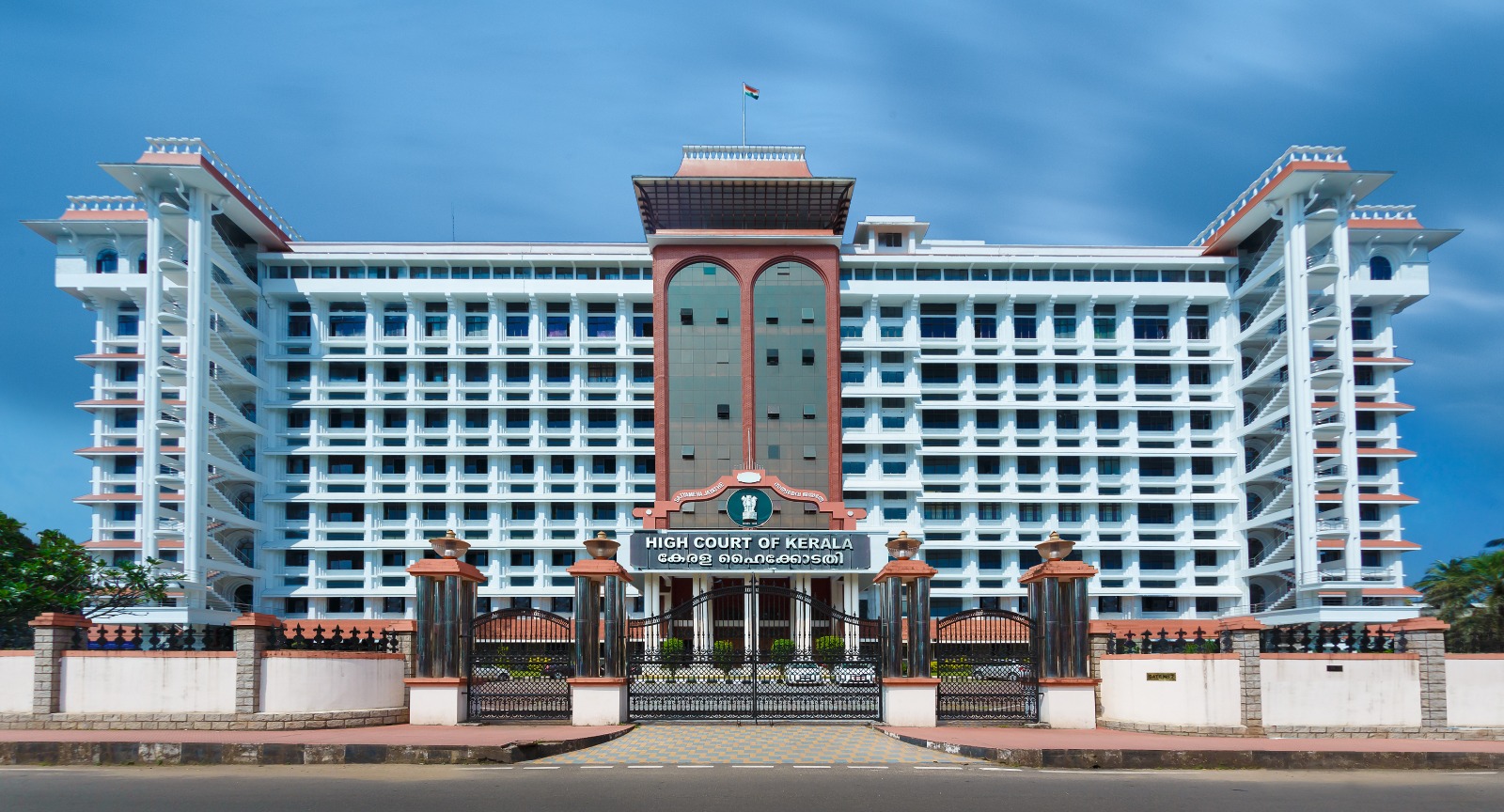D. Murugesan, J.@mdashBoth the Writ Appeals are directed against the order in W.P.No.2589 of 1988 dated July 19, 1991.
2. The parties are referred to in the judgment as shown in the cause title in W.A. No. 1082 of 1991.
3. The following are the brief facts, leading to the filing of the present writ appeals.
The second respondent/Management of Soundararaja Spinning Mills, Nedungadu, Karaikkal came into existence during the year 1966. Altogether, 375 persons were employed] in the Mill. On August 7, 1978 a settlement was entered u/s 12(3) of the Industrial Disputes Act (hereinafter referred to as "the Act") by the Management with the Union of I.N.T.U.C., which is the only Union; representing the employees at that time. The said settlement was for a period of five years from the date of the settlement. After the said settlement was entered yet another Union affiliated to C.I.T.U., came into existence, representing some of the employees of the Mill. According to the settlement dated August 7, 1978, the work-load was on par with the workload that prevailed in most of the Textile Mills in Coimbatore. The settlement dated August 7, 1978 expired on October 1, 1983. When the said settlement was in force, the management put up a notice dated February 22, 1983, demanding an increase in the workload without terminating the earlier settlement dated August 7, 1978. The said attempt on the part of the management was objected to by the C.I.T.U. Another settlement u/s 18(1) of "the Act" was entered between the Management and the representatives of the. I.N.T.U.C on October 1, 1983. According to the appellants and ten other workmen, the said settlement dated October 1, 1983 is not binding on them and therefore, they were not agreeable to the revision of workload as arrived in the said settlement. The appellants along with other ten other workers were dismissed from service on the ground that they did not complete the increased workload as per the settlement dated October 1, 1983. Hence, the appellants and ten other workmen raised dispute, which was referred to the Labour Court, Pondicherry at Karaikkal u/s 10(1) of "the Act" vide notification G.O.Rt. No. 79/85- Lab., dated February 5, 1985. The reference reads as under:
"Whether the termination of 12 workers of Soundararaja Spinning Mills, Nedungadu by the management is justified? If not, to what relief they are entitled to? To compute the relief, if any, awarded in terms of money, if it can be so computed?"
4. The Labour Court adjudicated the said dispute in I. D. No. 1 of 1985 and by award dated July 1, 1997 found that the settlement is fair and reasonable and the same has been arrived u/s 18(1) of "the Act" and the said settlement binds all the workmen of the Mill. The Labour Court further found that if any worker is aggrieved about the settlement they should refer the dispute to the Tribunal for adjudication regarding its fairness and reasonableness, on the other hand, they had taken constantly absenting unauthorisedly thereby causing dislocation of the work. Holding so, the Labour Court held that the orders of dismissal passed by the management against 12 workmen were justified.
5. Aggrieved by the said award, 12 workmen filed W.P. No. 2589 of 1988. Learned single Judge on consideration of the entire matter, ultimately held that there cannot be a settlement u/s 18(1) of "the Act" without terminating the earlier settlement dated August 7, 1978. However, learned single Judge was of the view that out of 12 workmen, except two workmen namely, the appellants the remaining 10 workmen did not belong to I.N.T.U.C. Learned single Judge further found in view of Section 18(1) of "the Act", the settlement entered u/s 18(1) of "the Act" is not binding on 10 workmen. Holding so, learned single Judge set aside the orders of dismissal in respect of 10 workmen. Insofar as the remaining two workers namely, the appellants, learned single Judge found that they were the members of I.N.T.U.C. Union at the relevant point of time when the settlement u/s 18(1) of "the Act" was entered into and held that the settlement is binding on them u/s 18(1) of "the Act" as they were parties to the settlement. Holding so, learned single Judge upheld the orders of dismissal in respect of two workmen.
6. W.A. No. 1082 of 1991 has been filed by two workmen, whose orders of dismissal were upheld by the learned single Judge and W.A. No. 1292 of 1991 has been filed by the Management as against the order of the learned single Judge, setting aside the orders of dismissal in respect of ten workmen.
7. Mr. N.G.R. Prasad, learned counsel appearing for the appellants in W.A. No. 1082 of 1991 submitted that inasmuch as the appellants are also not parties to the settlement dated October 1, 1983, the learned single Judge ought to have allowed the challenge to the orders of dismissal as has been held in respect of other 10 workmen. Learned counsel appearing for the appellants would further submit that the question that was referred to before the Labour Court was in respect of non-employment of the workmen and therefore, when the non-employment in respect often workmen was held by the learned single Judge as not justified, the same benefit ought to have been extended to the appellants also. The learned counsel also submitted that the punishment of dismissal is totally disproportionate and therefore, the Court should interfere in the quantum of punishment u/s 11-A of "the Act". In support of the said submission, learned counsel would rely upon the judgment reported in
8. W.A. No. 1292 of 1991 has been filed by the Management of the Mills, challenging a portion of the order of the learned single Judge in setting aside the orders of dismissal against ten workmen, viz., petitioners 1 to 9 and 11 in the writ petition.
9. Mr. R.S. Ramanathan, learned counsel appearing for the appellants would contend that when the settlement u/s 18(1) of the Act" is entered into by the Union representing majority of the workmen, the same shall be binding also on a small number of workers of other Union as well. Learned counsel also submitted that inasmuch as the I.N.T.U.C., which represented 400 workmen had entered into settlement dated October 1, 1983 with the management and the same sought to be assailed by C.I.T.U. which has only 30 members of its own. That apart, out of 30 workmen, 20 workmen have already settled and the dispute was raised only by the remaining 10 workmen. Therefore, learned counsel submitted that a settlement entered by the majority of the workmen should be presumed as just, fair and reasonable and the same cannot be assailed by a Union representing only a small number of workers. In support of the submissions, learned counsel relied upon the judgments of the Apex Court reported in Amalgamated Coffee Estates Ltd. and Ors. v. Their Workmen and Ors., 1965 II LLJ 110 and
10. We gave our anxious consideration to the rival submissions of the respective learned counsel. The facts as narrated above would indicate that there is no dispute as to the settlement dated August 7, 1978 entered into u/s 12(3) of "the Act" between the management and I.N.T.U.C. The said settlement was in force for a period of five years i.e. upto August 6, 1983. It is also not in dispute that subsequent to the above settlement, another Union affiliated to C.I.T.U. came into existence in the Mill. Since the settlement dated August 7, 1978 was only for a period of five years i.e., upto September 6, 1983, the management of the Mill thought it fit to revise the norms relating to workload and hence, a notice was put up on February 22, 1983. Of course, the said attempt on the part of the management to revise the norms relating to workload was objected to by C.I.T.U. Nevertheless the management entered into the settlement u/s 18(1) of "the Act" on October 1, 1983, revising the norms relating to workload. Section 18(1) of "the Act" reads as under:
"A settlement arrived at by agreement between the employer and workman otherwise than in the course of conciliation proceeding shall be binding on the parties to the agreement".
11. It is not in dispute that the settlement dated October 1, 1983 was arrived u/s 18(1) of "the Act". The question of binding nature of settlement u/s 18(1) of "the Act" came up for consideration before the Apex Court in
12. Learned single Judge, following the said judgment of the Apex Court has held that the settlement is not binding in respect of ten workmen, who were not parties to the settlement. Conversingly, the learned single. Judge also held that two workmen, viz., the appellants in W. A. No. 1082 of 1991 were the members of I.N.T.U.C. at the time when the settlement u/s 18(1) of "the Act" was entered into and therefore, the settlement is binding.
13. We do not find any reason to take a different view other than the one reached by the learned single Judge. Admittedly, out of 12 workmen who raised the industrial dispute, ten workmen were the members of C. I. T. U. which was not party to the settlement u/s 18(1) of "the Act" and the remaining two workmen viz., the appellants in W.A. No. 1082 of 1991 were admittedly, the members of I.N.T.U.C. Hence, we do not find any infirmity in the order in the writ petition. Hence we reject the contention of both the learned counsel appearing in the respective writ appeals.
14. Coming to the submission of Mr. N.G.R. Prasad as to Section 11-A of "the Act", regarding powers of Labour Courts, Tribunals to give appropriate relief in case of discharge or dismissal of workmen, learned single Judge, by placing reliance upon the judgment of the Supreme Court in Engine Valves Ltd. v. Labour Court, Madras, (supra) has negatived the said submission of the learned counsel.
15. In the present case, the Labour Court on merits also came to the conclusion that the charges were proved. The said finding of the Labour Court was on facts and evidence, which has not been interfered by the learned single Judge. A Division Bench of this Court in the judgment reported in
16. Accordingly, both the Writ Appeals fail and the same are dismissed and the order of the learned single Judge in W.P. No. 2589 of 1988 is confirmed. No costs. Consequently, the connected C.M.P. No. 14085 of 1991 is closed.

